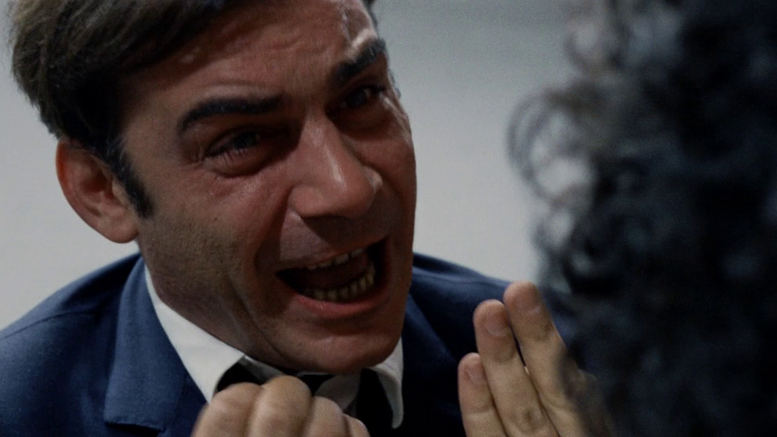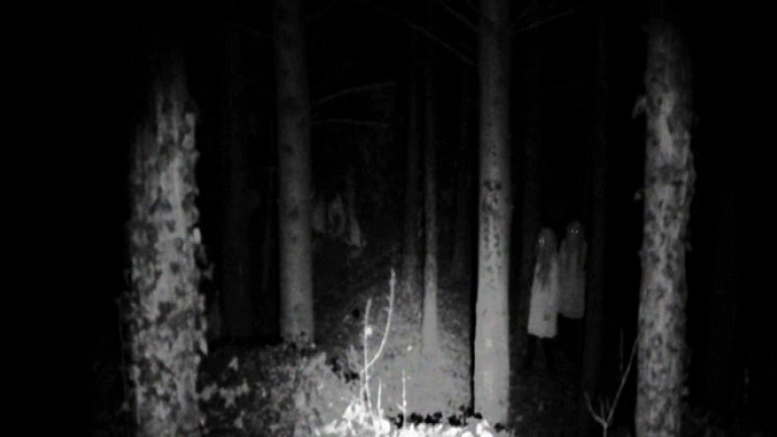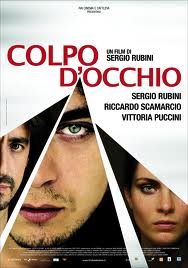
Aka Colpo d’occhio
2008
Original running time: 110 minutes
Italy
Produced by Riccardo Tozzi, Marco Chimenz & Giovanni Stabilini for Cattleya & RAI Cinema
Release date: 20-03-2008
Director: Sergio Rubini
Story: Angelo Pasquini, Carla Cavalluzzi, Sergio Rubini
Screenplay: Angelo Pasquini, Carla Cavalluzzi, Sergio Rubini
Cinematography: Vladan Radovic
Music: Pino Donaggio
Editor: Giogiò Franchini
Art director: Luca Gobbi
Cast: Sergio Rubini (Lulli), Riccardo Scamarcio (Adrian), Vittoria Puccini (Gloria), Richard Sammel (Svensson), Paola Barale (Sonia), Emanuele Salce (Righi), Giancarlo Ratti (Nicola), Giorgio Colangeli (policeman), Alexandra Prusa (Emma Bauer), Flavio Parenti (Claudio)
At a Glance is the ninth film of Sergio Rubini, a talented actor who has appeared in films like Intervista (87), Nirvana (97) and The Talented Mr. Ripley (99). His directorial output tends towards the melodramatic and, despite picking up plaudits for films such as La stazione (90) and La bionda (96), not much of it has travelled well outside of Italy.
Renowned curator and critic Lulli (Sergio Rubini) is scouting around galleries for new artworks to feature in a high-profile exhibition, accompanied by his rather glamorous and much younger girlfriend, Gloria (Vittoria Puccini). Most of the stuff they come across is complete rubbish (which, in the real world, means it would have the potential to be a big seller), but she’s rather taken with the sculptures made by an unknown artist called Adrian (Riccardo Scamarcia). She’s also rather taken with Adrian himself, and the two of them start having an affair; all of which understandably leads her to question her relationship with Lulli, and she decides to end it by slipping a ‘Dear John’ letter under his door.
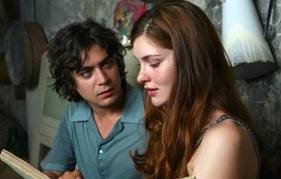
Before long, she and Adrian are living together in his handy rustic farmhouse, but what would otherwise be a blissful life is handicapped by a couple of serious issues. Firstly, Gloria, who is haunted by unclear events from her childhood, rapidly becomes pregnant. Secondly, Lulli, who has just recovered from a serious car accident – which was quite possibly the result of a suicide attempt – ‘coincidentally’ starts representing Adrian, helping to get him some high profile commissions and make his name. Despite his claims to have moved on from the past, Lulli’s continued presence in their life only serves to unnerve Gloria.
And it seems she might be on to something: Lulli seems to take an unwholesome pleasure in Adrian’s need for his patronage, even alienating him from his oldest friend, Claudio (Flavio Parenti). And at the point when he is most vulnerable – when his first exhibition is due to start and Gloria has suffered a miscarriage – Lulli starts doing everything he can to destroy him.
This is a decently made but not particularly fast moving film, which suffers from the fact that almost the entire cast are either idiots or arrogant tossers. Unfortunately, films set among the cultural cognoscenti tend to suffer from a similar problem as films set in the media or in law firms: they’re full of self-obsessed people who frankly aren’t all that likeable. In fact, the more interesting characters – Claudio and Righi, a former artist who now works as Lulli’s assistant (aka spooky henchman) – only go to show just how dull and tedious everyone else is.
The subject – the parasitical relationship between artists and critics, and how the latter can destroy the former for reasons that have little to do with artistic merit (or lack thereof) – is interesting enough. But a lot of the running time is taken up with the politics of success in the art world, a topic which is mildly interesting rather than gripping. However, one thing the film does make clear is that naff art isn’t just the preserve of the Young British Artists; there’s so much terrible stuff on display here it makes the Chapman Brothers look like Raphael & Michealangelo.
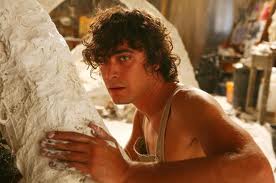
Given all this, it’s not a bad film, certainly not as terrible as some internet reviewers have made out, possibly mistaking it for a thriller rather than a psychological drama. It also gets a lot better as the running time progresses, working up a considerable head of steam as it reaches it’s melodramatic climax. Sergio Rubini’s direction is competent and occasionally stylish, and he puts in an impressive performance as the manipulative, monstrous Lulli. Puccini & Scamarcia are rather less effective; Scamarcia is a good actor, but he’s amazingly over the top here, while Puccini is simply a vacuum.
At a Glance was obviously made with some backing – it apparently suffered from some shooting problems and went over-budget – and it looks pretty good, even if Pino Donaggio’s soundtrack is amazingly inappropriate. According to Rubini: “It all really began with Scamarcio. I knew that he was rather fond of me and I thought: “But let’s see if this young man who finds a point of reference in me, a big brother figure, would be able to find a person who deep down would secretly kill him.” This film is in a way the dramatisation of a negative thought.” It did moderately well on release, taking approximately €2 million (not bad for an Italian film which isn’t a comedy).
Here’s the trailer:
AT A GLANCE
Aka Colpo d’occhio
2007
Original running time: 110 minutes
Italy
Colore C
Produced by Riccardo Tozzi, Marco Chimenz & Giovanni Stabilini for Cattleya & RAI Cinema
Release date: 20-03-2008
Director: Sergio Rubini
Story: Angelo Pasquini, Carla Cavalluzzi, Sergio Rubini
Screenplay: Angelo Pasquini, Carla Cavalluzzi, Sergio Rubini
Cinematography: Vladan Radovic
Music: Pino Donaggio
Editor: Giogiò Franchini
Art director: Luca Gobbi
Cast: Sergio Rubini (Lulli), Riccardo Scamarcio (Adrian), Vittoria Puccini (Gloria), Richard Sammel (Svensson), Paola Barale (Sonia), Emanuele Salce (Righi), Giancarlo Ratti (Nicola), Giorgio Colangeli (policeman), Alexandra Prusa (Emma Bauer), Flavio Parenti (Claudio)
At a Glance is the ninth film of Sergio Rubini, a talented actor who has appeared in films like Intervista (87), Nirvana (97) and The Talented Mr. Ripley (99). His directorial output tends towards the melodramatic and, despite picking up plaudits for films such as La stazione (90) and La bionda (96), not much of it has travelled well outside of Italy.
Renowned curator and critic Lulli (Sergio Rubini) is scouting around galleries for new artworks to feature in a high-profile exhibition, accompanied by his rather glamorous and much younger girlfriend, Gloria (Vittoria Puccini). Most of the stuff they come across is complete rubbish (which, in the real world, means it would have the potential to be a big seller), but she’s rather taken with the sculptures made by an unknown artist called Adrian (Riccardo Scamarcia). She’s also rather taken with Adrian himself, and the two of them start having an affair; all of which understandably leads her to question her relationship with Lulli, and she decides to end it by slipping a ‘Dear John’ letter under his door.
Before long, she and Adrian are living together in his handy rustic farmhouse, but what would otherwise be a blissful life is handicapped by a couple of serious issues. Firstly, Gloria, who is haunted by unclear events from her childhood, rapidly becomes pregnant. Secondly, Lulli, who has just recovered from a serious car accident – which was quite possibly the result of a suicide attempt – ‘coincidentally’ starts representing Adrian, helping to get him some high profile commissions and make his name. Despite his claims to have moved on from the past, Lulli’s continued presence in their life only serves to unnerve Gloria.
And it seems she might be on to something: Lulli seems to take an unwholesome pleasure in Adrian’s need for his patronage, even alienating him from his oldest friend, Claudio (Flavio Parenti). And at the point when he is most vulnerable – when his first exhibition is due to start and Gloria has suffered a miscarriage – Lulli starts doing everything he can to destroy him.
This is a decently made but not particularly fast moving film, which suffers from the fact that almost the entire cast are either idiots or arrogant tossers. Unfortunately, films set among the cultural cognoscenti tend to suffer from a similar problem as films set in the media or in law firms: they’re full of self-obsessed people who frankly aren’t all that likeable. In fact, the more interesting characters – Claudio and Righi, a former artist who now works as Lulli’s assistant (aka spooky henchman) – only go to show just how dull and tedious everyone else is.
The subject – the parasitical relationship between artists and critics, and how the latter can destroy the former for reasons that have little to do with artistic merit (or lack thereof) – is interesting enough. But a lot of the running time is taken up with the politics of success in the art world, a topic which is mildly interesting rather than gripping. However, one thing the film does make clear is that naff art isn’t just the preserve of the Young British Artists; there’s so much terrible stuff on display here it makes the Chapman Brothers look like Raphael & Michealangelo.
Given all this, it’s not a bad film, certainly not as terrible as some internet reviewers have made out, possibly mistaking it for a thriller rather than a psychological drama. It also gets a lot better as the running time progresses, working up a considerable head of steam as it reaches it’s melodramatic climax. Sergio Rubini’s direction is competent and occasionally stylish, and he puts in an impressive performance as the manipulative, monstrous Lulli. Puccini & Scamarcia are rather less effective; Scamarcia is a good actor, but he’s amazingly over the top here, while Puccini is simply a vacuum.
At a Glance was obviously made with some backing – it apparently suffered from some shooting problems and went over-budget – and it looks pretty good, even if Pino Donaggio’s soundtrack is amazingly inappropriate. According to Rubini: “It
Aka Colpo d’occhio
Original running time: 110 minutes
Italy
Produced by Riccardo Tozzi, Marco Chimenz & Giovanni Stabilini for Cattleya & RAI Cinema
Release date: 20-03-2008
Director: Sergio Rubini
Story: Angelo Pasquini, Carla Cavalluzzi, Sergio Rubini
Screenplay: Angelo Pasquini, Carla Cavalluzzi, Sergio Rubini
Cinematography: Vladan Radovic
Music: Pino Donaggio
Editor: Giogiò Franchini
Art director: Luca Gobbi
Cast: Sergio Rubini (Lulli), Riccardo Scamarcio (Adrian), Vittoria Puccini (Gloria), Richard Sammel (Svensson), Paola Barale (Sonia), Emanuele Salce (Righi), Giancarlo Ratti (Nicola), Giorgio Colangeli (policeman), Alexandra Prusa (Emma Bauer), Flavio Parenti (Claudio)
At a Glance is the ninth film of Sergio Rubini, a talented actor who has appeared in films like Intervista (87), Nirvana (97) and The Talented Mr. Ripley (99). His directorial output tends towards the melodramatic and, despite picking up plaudits for films such as La stazione (90) and La bionda (96), not much of it has travelled well outside of Italy.Renowned curator and critic Lulli (Sergio Rubini) is scouting around galleries for new artworks to feature in a high-profile exhibition, accompanied by his rather glamorous and much younger girlfriend, Gloria (Vittoria Puccini). Most of the stuff they come across is complete rubbish (which, in the real world, means it would have the potential to be a big seller), but she’s rather taken with the sculptures made by an unknown artist called Adrian (Riccardo Scamarcia). She’s also rather taken with Adrian himself, and the two of them start having an affair; all of which understandably leads her to question her relationship with Lulli, and she decides to end it by slipping a ‘Dear John’ letter under his door.
Before long, she and Adrian are living together in his handy rustic farmhouse, but what would otherwise be a blissful life is handicapped by a couple of serious issues. Firstly, Gloria, who is haunted by unclear events from her childhood, rapidly becomes pregnant. Secondly, Lulli, who has just recovered from a serious car accident – which was quite possibly the result of a suicide attempt – ‘coincidentally’ starts representing Adrian, helping to get him some high profile commissions and make his name. Despite his claims to have moved on from the past, Lulli’s continued presence in their life only serves to unnerve Gloria.
And it seems she might be on to something: Lulli seems to take an unwholesome pleasure in Adrian’s need for his patronage, even alienating him from his oldest friend, Claudio (Flavio Parenti). And at the point when he is most vulnerable – when his first exhibition is due to start and Gloria has suffered a miscarriage – Lulli starts doing everything he can to destroy him.
This is a decently made but not particularly fast moving film, which suffers from the fact that almost the entire cast are either idiots or arrogant tossers. Unfortunately, films set among the cultural cognoscenti tend to suffer from a similar problem as films set in the media or in law firms: they’re full of self-obsessed people who frankly aren’t all that likeable. In fact, the more interesting characters – Claudio and Righi, a former artist who now works as Lulli’s assistant (aka spooky henchman) – only go to show just how dull and tedious everyone else is.
The subject – the parasitical relationship between artists and critics, and how the latter can destroy the former for reasons that have little to do with artistic merit (or lack thereof) – is interesting enough. But a lot of the running time is taken up with the politics of success in the art world, a topic which is mildly interesting rather than gripping. However, one thing the film does make clear is that naff art isn’t just the preserve of the Young British Artists; there’s so much terrible stuff on display here it makes the Chapman Brothers look like Raphael & Michealangelo.
Given all this, it’s not a bad film, certainly not as terrible as some internet reviewers have made out, possibly mistaking it for a thriller rather than a psychological drama. It also gets a lot better as the running time progresses, working up a considerable head of steam as it reaches it’s melodramatic climax. Sergio Rubini’s direction is competent and occasionally stylish, and he puts in an impressive performance as the manipulative, monstrous Lulli. Puccini & Scamarcia are rather less effective; Scamarcia is a good actor, but he’s amazingly over the top here, while Puccini is simply a vacuum.
At a Glance was obviously made with some backing – it apparently suffered from some shooting problems and went over-budget – and it looks pretty good, even if Pino Donaggio’s soundtrack is amazingly inappropriate. According to Rubini: “It all really began with Scamarcio. I knew that he was rather fond of me and I thought: “But let’s see if this young man who finds a point of reference in me, a big brother figure, would be able to find a person who deep down would secretly kill him.” This film is in a way the dramatisation of a negative thought.” It did moderately well on release, taking approximately €2 million (not bad for an Italian film which isn’t a comedy).
all really began with Scamarcio. I knew that he was rather fond of me and I thought: “But let’s see if this young man who finds a point of reference in me, a big brother figure, would be able to find a person who deep down would secretly kill him.” This film is in a way the dramatisation of a negative thought.” It did moderately well on release, taking approximately €2 million (not bad for an Italian film which isn’t a comedy).
